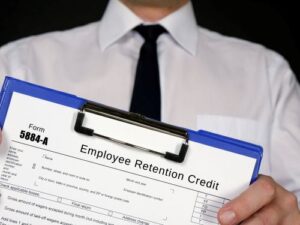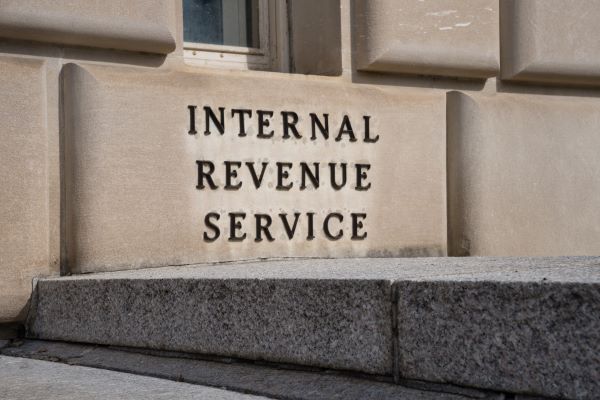ERTC Update – Processing Moratorium
 The Employee Retention Tax Credit (ERTC) is the only remaining pandemic era federal tax incentive still available to eligible companies. It is a refundable credit designed for those that continued paying employees during the pandemic while subjected to a full or partial suspension due to a government order or a significant decline in gross receipts. While various rules were changed between 2020 and 2021, including the per employee credit amount, the core eligibility rules have been largely consistent. Unfortunately, aggressive promoters and marketing firms have permeated the market recently encouraging businesses to apply despite not being eligible. Not only has this created significant challenges for the IRS, but also exposed taxpayers to penalties, fines, and compulsory repayment.
The Employee Retention Tax Credit (ERTC) is the only remaining pandemic era federal tax incentive still available to eligible companies. It is a refundable credit designed for those that continued paying employees during the pandemic while subjected to a full or partial suspension due to a government order or a significant decline in gross receipts. While various rules were changed between 2020 and 2021, including the per employee credit amount, the core eligibility rules have been largely consistent. Unfortunately, aggressive promoters and marketing firms have permeated the market recently encouraging businesses to apply despite not being eligible. Not only has this created significant challenges for the IRS, but also exposed taxpayers to penalties, fines, and compulsory repayment.
Late last week, the IRS issued IR-2023-169 which announced the agency’s immediate moratorium on ERTC claims processing through the end of the year. The change is designed to provide additional time needed to implement new review procedures on the multitude of claims currently being processed. The agency will continue processing claims received prior to September 14th but warns the standard processing time is expected to at least double with disbursement times also increasing. To help clients, prospects, and others, Whipplewood CPAs has provided a summary of the key details below.
Moratorium Overview
The announcement signals a significant change in how the IRS will review and process claims. Not only will new claims not be processed for at least three months, but existing claims will now be subject to additional scrutiny and procedures. The change is not only designed to prevent fraud but also protect business owners from facing penalties and interest payments which arise when an improperly submitted claim is awarded.
The catalyst for the moratorium is the increasing number of improper claims being submitted by aggressive promoters and marketing firms simply looking to profit. Unlike well trained and professional tax advisors that offer advice based on the program’s details, these businesses are interested in submitting a high volume of claims since this is how payment is earned. Claims are made about how submitting claims are risk free, but this is simply not the case. Improperly awarded claims need to be repaid often with interest and penalties. The result is taxpayers end up paying a large application preparation fee only to find out received monies need to be repaid. A terrible outcome the IRS is seeking to prevent.
“The IRS is increasingly alarmed about honest small business owners being scammed by unscrupulous actors, and we could no longer tolerate growing evidence of questionable claims pouring in,” Danny Werfel, IRS Commissioner, said. “The further we get from the pandemic, the further we see the good intentions of this important program abused. The continued aggressive marketing of these schemes is harming well-meaning businesses and delaying the payment of legitimate claims.”
Taxpayer Guidance
Depending on where a taxpayer is in the claims process, the IRS recommends the following steps:
- Taxpayers Awaiting a Claim – Those who have already submitted a claim should be assured the IRS will continue processing it during the moratorium. However, the agency warns it will take significantly longer due to updated review procedures. Previously, the standard processing time was 90 days but now it could take up to 180 days or longer if selected for additional scrutiny or audit. Matters are made more complicated by the millions of claims awaiting processing. It is important to note individual claims will not be expedited.
- Taxpayers that Haven’t Filed a Claim – For those companies that have yet to file a claim it is important to review eligibility with a qualified tax advisor. Aggressive promoters often only work with ERTC claims, whereas tax advisors have practical experience and expertise on various types of tax requirements. This review will help to ensure a claim is legitimate and protect the company from the ill effects that arise when funds are improperly awarded.
- Leverage the Withdrawal Program – The IRS is currently finalizing details of a new withdrawal program. It will allow companies that discover a claim has been improperly submitted to withdrawal it from consideration. In any case, if a company has submitted a claim that has not been processed or paid, it can be removed from the processing queue. This also applies to claims that are awaiting or are already under audit. Program details are expected to be published later this autumn.
Contact Us
The recently announced update signals a significant shift in how the IRS is addressing fraud in Employee Retention Tax Credit claims. Despite this update, eligible Denver taxpayers should not avoid filing. If you have questions about the information outlined above or need assistance with an ERTC claim review, WhippleWood CPAs can help. For additional information call 303-989-7600 or click here to contact us. We look forward to speaking with you soon.
About the Author

Mona Feeley CPA
Being a small business owner through some considerable life challenges has provided Mona the ability to see life and entrepreneurship from a unique perspective. Overcoming those challenges while seizing opportunities and moments that would probably pass others by has also given her an optimistic mindset and a brand of determination that is contagious to her colleagues and her clients.
